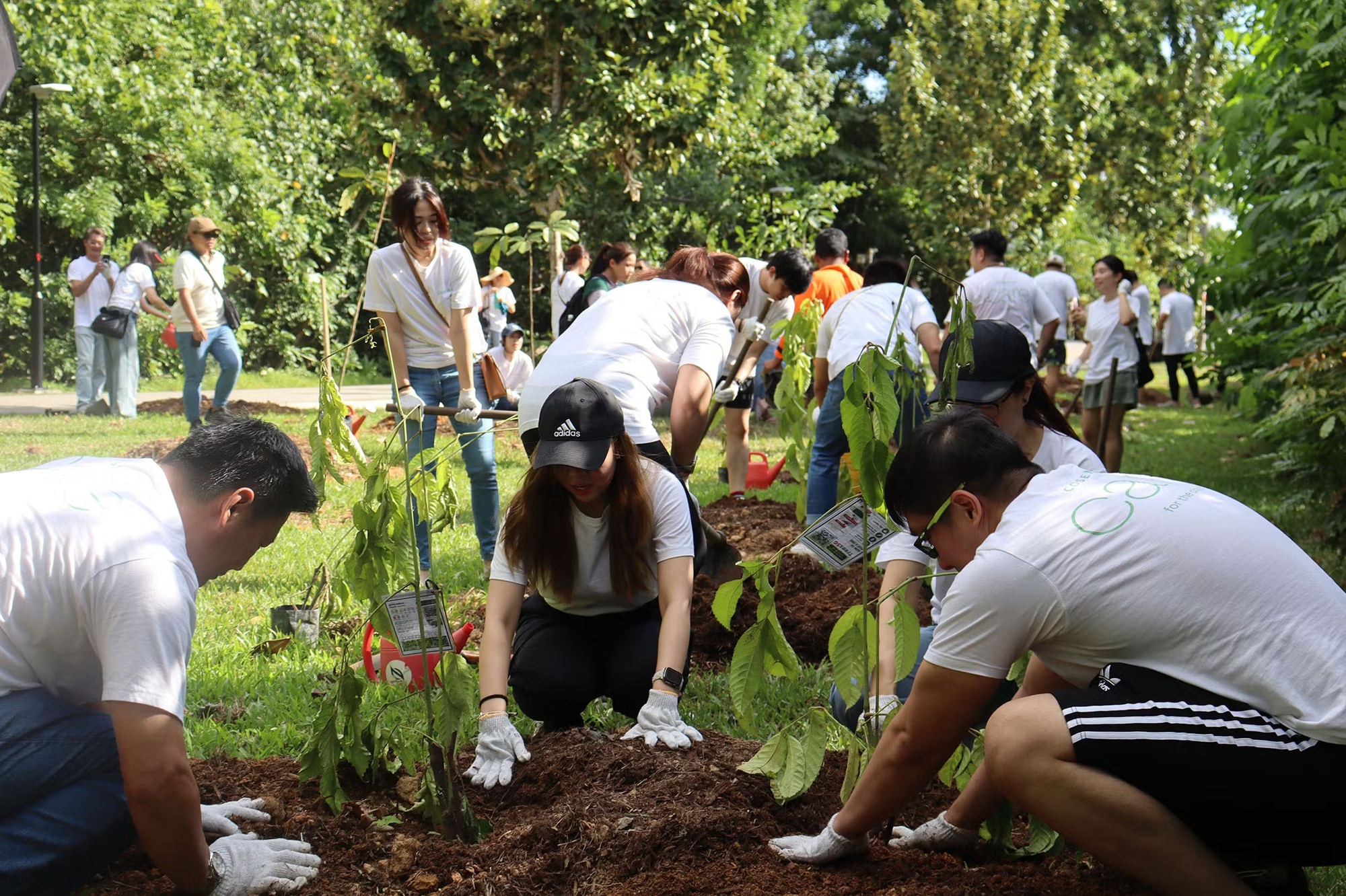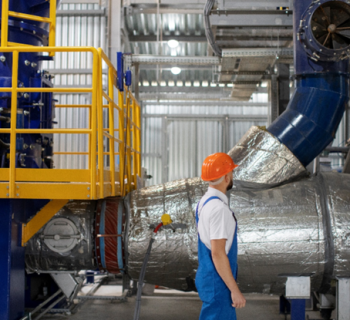Key Takeaways
- Eco-friendly pressure washing utilizes biodegradable detergents and water-efficient equipment to reduce environmental harm while delivering quality results.
- Techniques like soft washing and water reclamation systems conserve resources and protect local ecosystems from contamination and pollution.
- Regular maintenance using sustainable methods enhances property value and longevity, positively impacting homeowners and business operators alike.
Maintaining a clean, attractive exterior is crucial for both homes and businesses, contributing to curb appeal and the safety and longevity of exterior surfaces. However, the challenge for many property owners lies in finding a cleaning solution that’s not only effective but also environmentally responsible. Traditional exterior cleaning methods often waste water and introduce harsh chemicals into the local environment, sometimes causing more harm than good. Thankfully, pressure washing delivered with modern, eco-friendly approaches can achieve a thorough clean while minimizing negative environmental impacts, helping property owners uphold their green values.
Environmentally conscious pressure washing embraces biodegradable detergents, water conservation best practices, advanced reclamation technology, and eco-friendly cleaning equipment. These innovations not only keep properties pristine, but they also prevent pollution and contamination of local waterways, soils, and habitats. As sustainability becomes a priority for homeowners and commercial property managers, eco-friendly pressure washing is emerging as the preferred alternative to outdated, resource-intensive cleaning techniques.
Understanding Eco-Friendly Pressure Washing
Eco-friendly pressure washing involves more than simply spraying water at high velocity. It incorporates specialized equipment, green cleaning agents, and responsible water management strategies to deliver excellent results without harming the planet. Unlike conventional pressure washing, which can cause toxic runoff and substantial waste, these sustainable methods prevent chemicals from seeping into groundwater or harming local wildlife. By selecting eco-friendly pressure washing services, residential and commercial property owners can keep their spaces vibrant while fulfilling important environmental commitments. This eco-mindset can easily be extended beyond the primary building exterior. Sustainable techniques can be used to manage utility spaces, decks, sidewalks, and even window cleaning. Combining eco-conscious pressure washing with holistic, sustainable maintenance routines not only boosts a property’s appearance but also demonstrates a deep commitment to public health, wildlife preservation, and the welfare of the wider community.
Benefits of Sustainable Pressure Washing Practices
Embracing eco-conscious pressure washing presents a range of advantages that reach far beyond aesthetic improvement:
- Water Conservation: Modern eco-friendly systems include features such as water recirculation and high-efficiency nozzles, enabling operators to reduce water consumption significantly—sometimes saving hundreds of gallons in a single job. Conserving water helps reduce strain on municipal supplies and lowers utility bills.
- Reduced Chemical Exposure: Switching to biodegradable and plant-based detergents minimizes the risk of harmful substances leaching into the earth. This approach protects local water sources and prevents potential harm to pets and children who play or relax outdoors.
- Protection of Local Ecosystems: Responsible waste management and careful product selection ensure that nearby ponds, creeks, and wildlife habitats stay healthy and unpolluted. Preventing damaging chemical runoff is essential for maintaining thriving native landscapes and supporting pollinators and other beneficial wildlife.
- Enhanced Property Value: Sustainable, regular cleanings maintain the aesthetics and integrity of buildings, driveways, patios, and outdoor signage. Clean, well-preserved exteriors attract buyers, customers, and tenants, all while warding off premature wear and costly repairs due to neglect or improper cleaning.
Techniques for Eco-Friendly Pressure Washing
Soft Washing
Soft washing is explicitly designed for fragile or older surfaces, such as home siding, painted exteriors, stucco, shingle roofs, and wooden trims. Using an optimal blend of low water pressure and powerful yet eco-safe detergents, soft washing safely removes grime, organic growth like mold and algae, and built-up dirt. This approach preserves the structure beneath, preventing cracking, peeling, or premature degradation of finishes commonly seen with higher pressure alternatives. It’s not just gentle, but it’s also highly effective in restoring original brightness without causing collateral damage.
Water Reclamation Systems
Water reclamation is central to sustainable pressure washing. These advanced systems work by capturing runoff during the wash process, filtering contaminants, and allowing the water to be recycled safely where possible. For jobs where water cannot be reused on site, these systems make it easier to meet local regulations by providing a method for appropriate off-site disposal. This technology is particularly vital in urban or sensitive ecological zones, as it protects storm drains, groundwater, and adjacent green spaces from pollution—creating safer neighborhoods and reducing the risk of fines associated with environmental violations.
Use of Biodegradable Detergents
Eco-friendly pressure washing relies exclusively on cleaning agents that are readily biodegradable and entirely free from harsh chemicals such as phosphates, chlorine, or ammonia. These products are designed to break down quickly and harmlessly after use, leaving no lingering residue that could contaminate soil or water, or pose a risk to children, pets, and garden plants. The transition to green detergents is a simple choice that dramatically decreases the potential for lasting environmental harm.
Implementing Eco-Friendly Practices in Your Cleaning Routine
- Select the Right Equipment: Source or choose pressure washing services with modern, adjustable units that promote water conservation without compromising cleaning strength. Features like variable pressure controls and built-in filtration greatly enhance efficiency and sustainability.
- Choose Eco-Friendly Cleaning Solutions: Always verify that soaps or detergents are clearly labeled as non-toxic, biodegradable, and free from dangerous additives. This ensures overall safety for the property and environment.
- Schedule Regular Maintenance: Keeping up with a cleaning schedule prevents excessive buildup of dirt and grime, resulting in less labor, water, and detergent required during each session. A proactive approach maximizes both environmental and cost savings over time.
- Proper Wastewater Management: Establish routines and checks to ensure that all wastewater and runoff are appropriately captured and treated according to city and state rules. This will eliminate the risk of unintentional pollution and help comply with best practices in green property management.
Case Studies: Successful Eco-Friendly Pressure Washing
Businesses and private homeowners are seeing significant gains by shifting to sustainable pressure washing. A cleaning company based in the UK notably transitioned away from harsh chemical cleaners to fully biodegradable alternatives, implementing water reclamation equipment across many of their commercial contracts. This switch led to dramatic water savings, with a 34% reduction in total water use, and attracted favorable media coverage and new clientele interested in reducing their carbon footprints.
On the residential side, homeowners who utilize eco-certified pressure washing companies report noticeable differences in their landscapes and gardens following cleanings—grass, flowers, and shrubbery remain lush and healthy, with no signs of burns or residues that sometimes result from conventional chemical washes. Preservation-minded homeowners with older properties have successfully leveraged soft washing methods to clean exposed brick, aged masonry, and painted wood without risking surface erosion or fading, safeguarding decades-old aesthetics for many more years.
Conclusion
Switching to eco-friendly pressure washing techniques enables property owners to maintain visually stunning exteriors and take meaningful steps toward environmental stewardship. By prioritizing sustainability, supporting biodegradable product use, and conserving precious resources like water, you achieve outstanding cleaning results and ensure lasting property value, stronger community health, and ongoing natural beauty around your home or business. As eco-conscious cleaning standards continue to rise and more service providers adopt green methods, making this sustainable shift is not only easier but also more rewarding than ever before.









